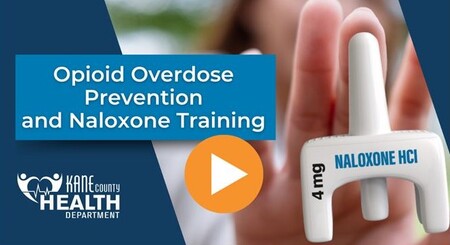By Dr. Kimberly Dennis, Chief Medical Officer, CEO and Co-Founder of SunCloud Health
The treatment of a physical malady is typically predicated on the severity of the problem. Consider a leg injury: a sprained ankle needs only an Ace bandage; a fractured tibia requires a cast; a completely torn MCL necessitates surgery to heal.
Issues of a psychiatric nature such as disorders or addictions are similar: one size does not fit all. Mild anxiety in an adolescent could be cured with outpatient therapy. This is one-on-one treatment provided by a trained counselor. Substance abuse in a college student may respond well to an intensive outpatient program, in which the person receives individual counseling and participates in groups. An eating disorder in a new mother could be effectively dealt with in a partial hospitalization program. This is much like intensive outpatient, but demands more time each week. However, when a psychiatric illness becomes very complicated or when two or more addictions or disorders are in play, a higher level of care is often indicated.
Residential Treatment Center (RTC)
In July of 2021, Sun Cloud Health opened a residential care center in Northbrook, Illinois, a suburb of Chicago, approximately 30 minutes from O’Hare international airport. It had been the dream of the SunCloud leadership since the opening of the initial treatment programs in 2016. But the unilateral commitment to get a treatment center worthy of the Suncloud name, one that offered the most comprehensive care as well as the highest caliber of professional staff, took a great deal of planning. It is easy to put up a sign, but it takes time to get it right. And SunCloud did.
Our RTC has 21 beds and treats all genders, 18 and older who struggle with
Eating disorders
Substance use disorder
Process addictions
Mood disorders
Trauma and post-traumatic stress disorder
Typically, clients admit to our RTC after spending time in a lower level of care, such as an intensive outpatient program (IOP) or partial hospitalization program (PHP). Often they move up from our less-intensive Chicago-based programs because they need more support than they can get in a day program. Recovery is not always a straight line up. Sometimes people get worse before they get better. Then, after spending time in our RTC, they may transition straight to home, or return to their previous program. Either way, this guarantees continuity of care, which is critical in the journey to recovery. Other patients may admit after spending time in inpatient hospitalization, when transitional or step-down care is recommended. The various levels of care are in place to support patients at all levels of their recovery journey. With residential care now offered at Suncloud, we can do just that all under the same clinical umbrella.
Reasons for Residential Treatment
This level of care is typically advisable for one or both of two reasons. First, our patients live at the center where they receive 24-hour-a-day support. This is important on many levels, physical, mental, emotional, and medical. A nurse is available around-the-clock to meet basic medical needs and to provide pharmaceutical intervention if required. Behavioral health specialists also remain at the location; they are always available if a patient needs support. Flashbacks, painful memories, panic attacks, do not adhere to a nine-to-five schedule. If a patient is distressed at two in the morning, there is someone to listen and provide comfort.
Living at the center is additionally beneficial because it removes the person from a possibly unhealthy environment. Living alone or without family support is often deleterious. A home that is chaotic, violent or rife with alcohol or drugs, can interfere with a patient’s progress. With us, people are safe.
Second, this level of care is critical particularly when two or more primary diagnoses are in evidence. A woman dealing with an eating disorder in tandem with alcohol abuse, or a man afflicted by depression and a gambling addiction, require a heightened degree of professional care. Whereas the treatment may look the same, it is more complex in areas such as pharmaceutical support. A medication might be excellent for anorexia, but not the co-occurring substance addiction. Our team is trained to treat the whole person.
Why Choose SunCloud Residential Care?
The simple answer is that it is now the best in the field, which means that traveling from a distant location to be in our care is worth the effort. Many programs claim to treat co-occurring disorders, but fail to do so. We treat every addiction and disorder simultaneously. To address only one and not the others is incomplete care. Most programs treat “one or the other”. We treat all of it. The average length of stay is three to four weeks.

Our care is integrated, wholistic and comprehensive. As such, we provide a wide range of therapeutic strategies: individual and group therapy, family therapy, process groups, cognitive behavioral therapy, dialectical behavior therapy, and experiential therapies such as, art, dance, yoga along with outdoor activities and local excursions. Patients receive psychiatric care and assistance from a dietician when appropriate.
Our center is brand new. It was created with our patients in mind: lots of open space; soft, tranquil colors throughout; and comfortable living spaces to relax, journal or read a book. There is a clear division between male and female rooms.
breakfast is created onsite, the other two meals are brought in from excellent local restaurants. Everyone eats in a well-appointed dining room with huge picture windows and an atmosphere designed for relaxation and conviviality.
The kitchen is primarily used for cooking experientials. Those with disordered eating gather together, touch food, follow recipes and ultimately make dishes to consume. This type of activity plays an enormous role in the healing of those who have an unhealthy relationship with food.
Every member of the residential staff is absolutely committed to the patient. We strive for recovery in all areas, in order that living a life of freedom from self destructive behaviors and thoughts is not only possible, but sustainable. Therefore, we focus on helping those who are equally dedicated. If a man wants to work on trauma issues, but not his alcohol dependence, he should look elsewhere. A woman who has anxiety, but fails to recognize and address her eating disorder, is likely not a candidate for our program. We are all-in; we expect our patients to be likewise.








